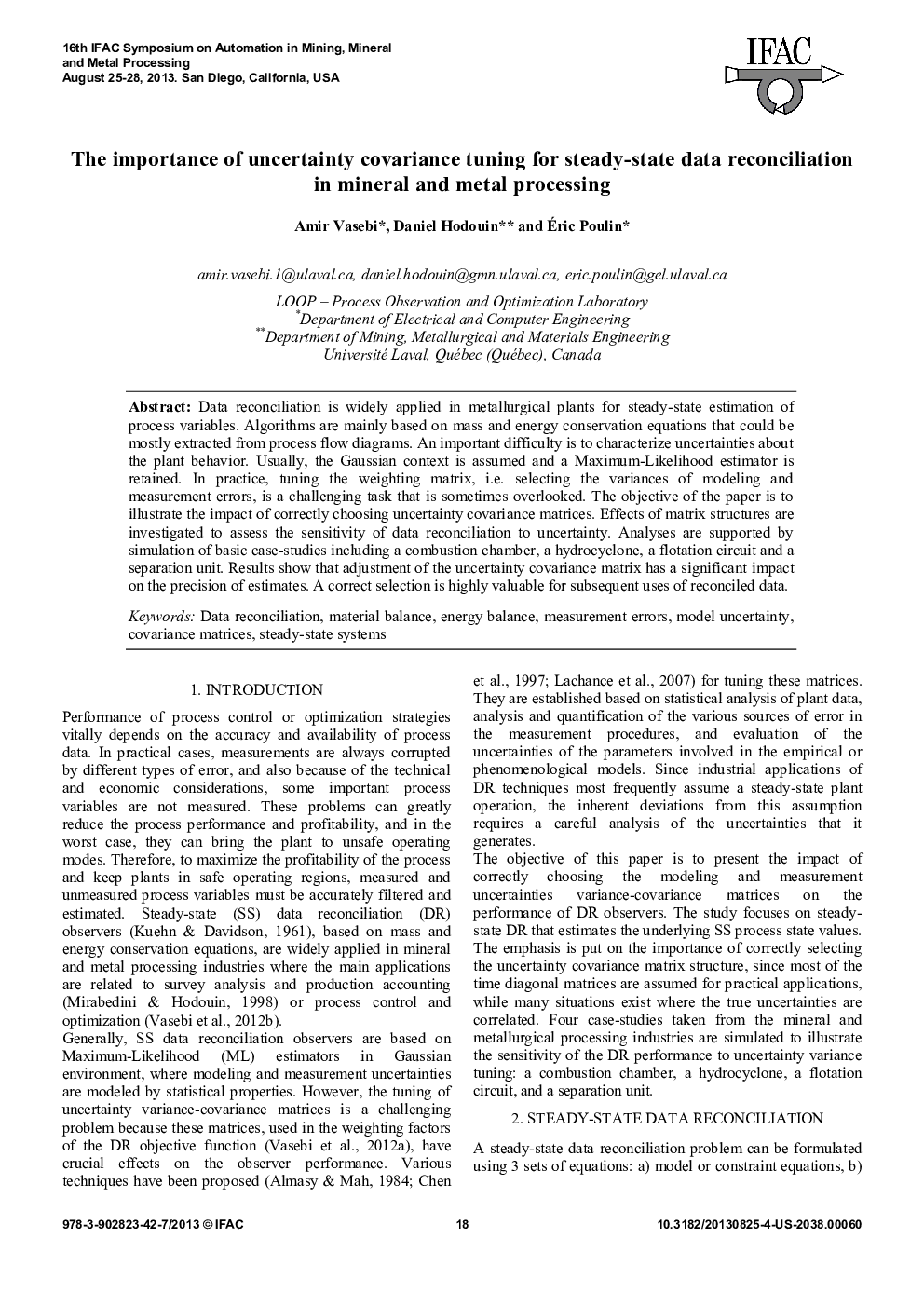| Article ID | Journal | Published Year | Pages | File Type |
|---|---|---|---|---|
| 709312 | IFAC Proceedings Volumes | 2013 | 6 Pages |
Data reconciliation is widely applied in metallurgical plants for steady-state estimation of process variables. Algorithms are mainly based on mass and energy conservation equations that could be mostly extracted from process flow diagrams. An important difficulty is to characterize uncertainties about the plant behavior. Usually, the Gaussian context is assumed and a Maximum-Likelihood estimator is retained. In practice, tuning the weighting matrix, i.e. selecting the variances of modeling and measurement errors, is a challenging task that is sometimes overlooked. The objective of the paper is to illustrate the impact of correctly choosing uncertainty covariance matrices. Effects of matrix structures are investigated to assess the sensitivity of data reconciliation to uncertainty. Analyses are supported by simulation of basic case-studies including a combustion chamber, a hydrocyclone, a flotation circuit and a separation unit. Results show that adjustment of the uncertainty covariance matrix has a significant impact on the precision of estimates. A correct selection is highly valuable for subsequent uses of reconciled data.
